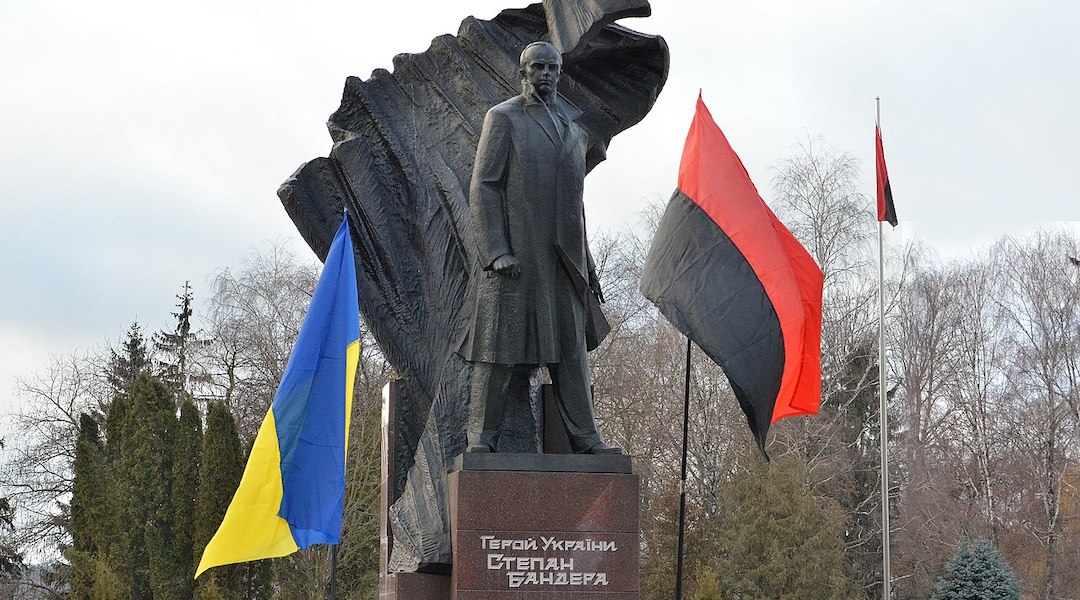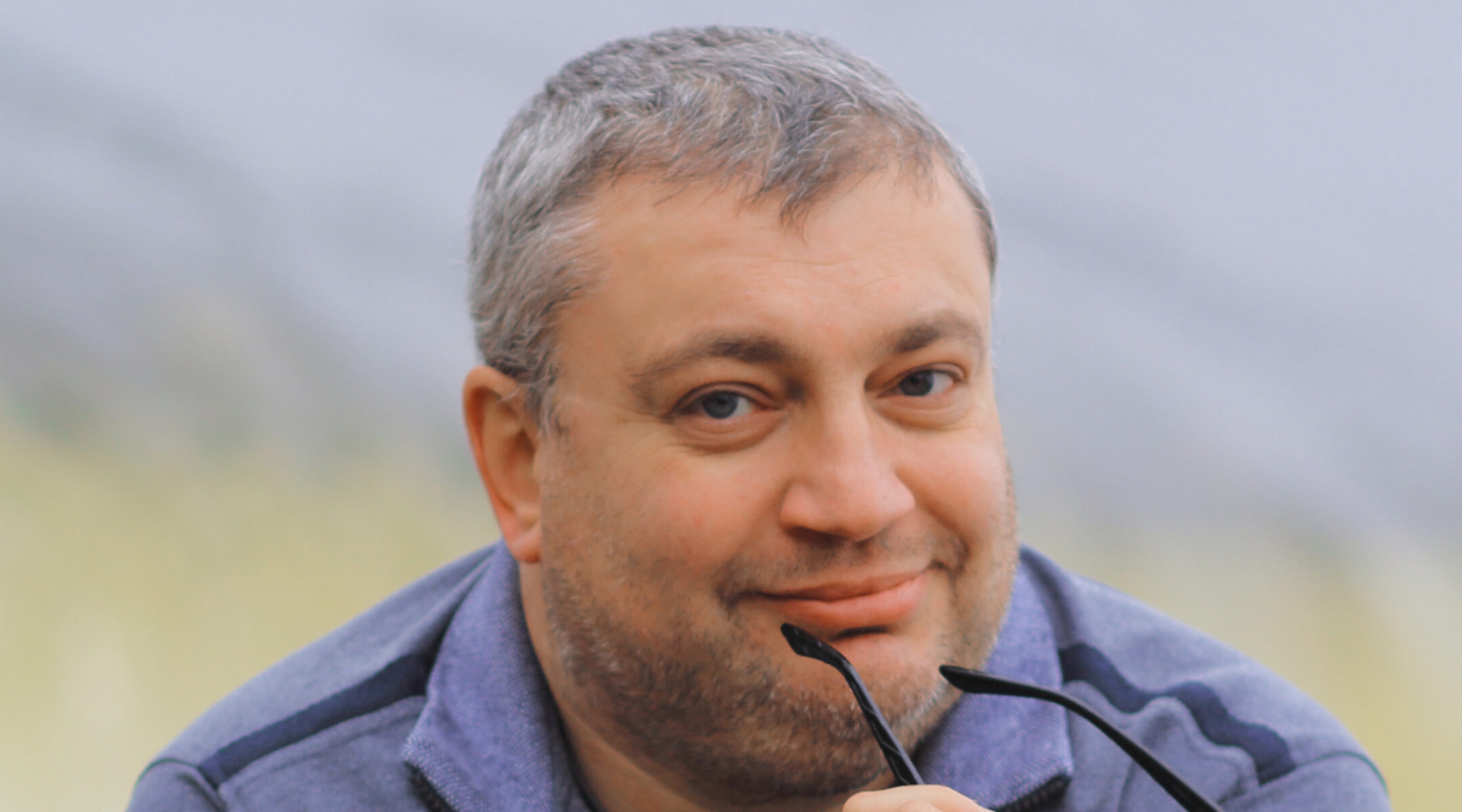(JTA) — A Jewish journalism professor says he was fired from a Ukrainian university for his opposition to a statue honoring a militia leader whose troops killed Jews in pogroms.
The case is a rare example of real-life implications stemming from the heated debate in Ukraine on nationalist memory that has stayed for the most part in the realm of theoretical exchanges.
Zoriy Fine, a photographer from the city of Vinnytsia, says he was fired from the Vinnytsia State Pedagogical University just two weeks after he was appointed to work there as a lecturer on journalism in 2017, according to an 11,000-word account he published last week.
Fine says his former employers told him he was dismissed for speaking out against a statue of Simon Petlyura, a politician and militia leader who fought for Ukrainian independence in the wake of the 1917 Russian Revolution.
Some of Petylura’s loyalists killed 35,000 to 50,000 Jews in a series of pogroms between 1918 and 1921.
Petlyura issued an order in 1919 ordering an end to pogroms, but he also said the “Jews and Muscovites” had brought the murders on themselves. He did not intervene during a visit to Zhytomyr when a pogrom was unfolding in that city, according to some historians.
The university denies Fine’s claims. He resigned “of his own will” and the university had no intention of firing him, a spokesperson told the Jewish Telegraphic Agency.
Fine says the experience made him leave Ukraine for Poland, where he lives as a “21st century dissident,” he wrote.
According to Fine, he was dismissed shortly after publishing on his website a letter to his late father telling him that “it’s good that you didn’t live to see” the veneration of Petlyura, whose militiamen killed Fine’s paternal great-grandfather in 1919.
Fine says he has remained silent on the affair until now for fear that speaking out might harm the chances of his daughter graduating from medical school, he wrote. He published his story upon her graduation.
Shortly before his alleged dismissal, Fine also published two poems protesting Petlyura’s honoring.
“Vinnitsa was stolen from me yesterday, planting Petlyura on a bench from which my grandfather was carved out,” he wrote in one.
Local media picked up Fine’s posts in 2017, presenting them as traitorous and anti-patriotic, prompting far-right activists to pressure the university into firing him, he wrote.
“One day I may feel like applying my resources and creativity for Ukraine’s benefit again,” he wrote in his account. But for now, “I no longer feel like inspiring the society that voluntarily commits a suicide in its collective consciousness.
“This is not my choice, not my war, not my responsibility.”
The decade-long debate whether to honor 20th-century nationalists in Ukraine has left Jews there uneasy. Advocates argue that people like Petlyura and Nazi collaborators such as Stepan Bandera should be celebrated for standing up to Soviet domination. Critics, including many Jews, say doing so is incompatible with Ukraine’s ambitions to join the European Union.

A statue of Ukrainian Nazi collaborator Stepan Bandera stands in Ternopil, Ukraine. (Mykola Vasylechko/Wikimedia Commons)
The statue honoring Petlyura was erected as part of a nationalist resurgence on the heels of an armed conflict that broke out in 2014 between Ukraine and Russia. The conflict followed the bloody overthrow of the president, Viktor Yanukovych, who was accused of corruption and bowing to Russia.
Since then, the country has seen unprecedented sights, including a 2018 march in Lviv during a city-sponsored event in which participants wore Nazi symbols that commemorated a Waffen SS unit with many local volunteers.
President Volodymyr Zelensky, a Jewish actor who was elected president last year, has voiced mild reservations about the trend. But he has avoided conflicts with the nationalist base over this issue, focusing instead on his attempts to modernize and rebrand Ukraine, whose economy was stagnant even before it was paralyzed by the coronavirus crisis.
“Let’s find those people whose names do not cause controversy in our present and in our future,” he said in an interview.
JTA has documented Jewish history in real-time for over a century. Keep our journalism strong by joining us in supporting independent, award-winning reporting.






